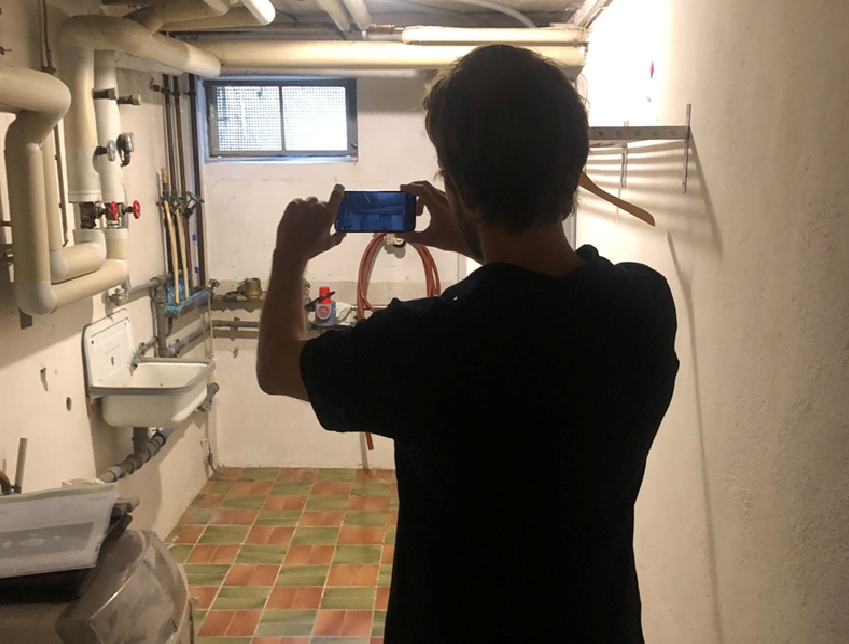| Duration: | 10/2023 - 09/2026 |
| Contracting Authority/ Sponsors: | Bundesministerium für Wirtschaft und Klimaschutz (BMWK) |
| Project Partners: | Zentralverband Sanitär Heizung Klima (ZVSHK, Koordination), Hans Schramm GmbH & Co. KG, Fraunhofer IBP, Fraunhofer ISE, SHK Innung Berlin |
| Project Focus: |
WESPE
Heat pumps – Installation Faster, More Productive and More Efficient – Optimizing Manual Retrofitting Processes

The WESPE-SHK project creates a platform that, together with the HVAC trade, facilitates the installation and its upfront- and follow-up-process when switching from fossil-fuel heat generation to heat pump-based systems in single family houses.
The aim is to significantly reduce the installation times so that the target of over 500,000 newly installed heat pumps per year can be achieved - despite a shortage of skilled workers in the sanitary, heating and air-conditioning (SHK) trade as a key partner for implementing the energy transition in the building sector.
To implement the energy transition in the building sector, around 6 million heat pump-based systems are to be installed by 2030. This is a huge challenge for the HVAC trade and the available supply of skilled workers, as bottlenecks are already becoming apparent today. For a successful energy transition in the building sector, not only optimal training of the skilled workers is required here, but above all an increase in productivity.
This is exactly where we come in, together with our partners from the skilled trades: Over the next three years, a platform is to be created that will help make new installation and retrofitting processes more readily available to the skilled trades. The platform aims to ensure that innovative processes are developed, optimized and trained, while at the same time deriving new, simplifying requirements for the systems. With the help of standardization and digitization of workflows, the installation process is to be accelerated. To this end, workflows such as inventory, customer communication, construction site coordination, logistics, material procurement and installation are analyzed with regard to their potential for improvement and digitization. On this basis, process-related and technical interfaces are simplified. The technological basis is provided by suitable, end-to-end information models and the simplification and reduction of assembly steps, e.g. through a higher industrial share of production.
In a continuous process, optimization steps are tested in real use on the construction site, evaluated and fed back into method development. In parallel, results are transferred into training curricula, especially for in-service training.
The "WESPE" project is funded by the German Federal Ministry of Economics and Climate Protection (BMWK).